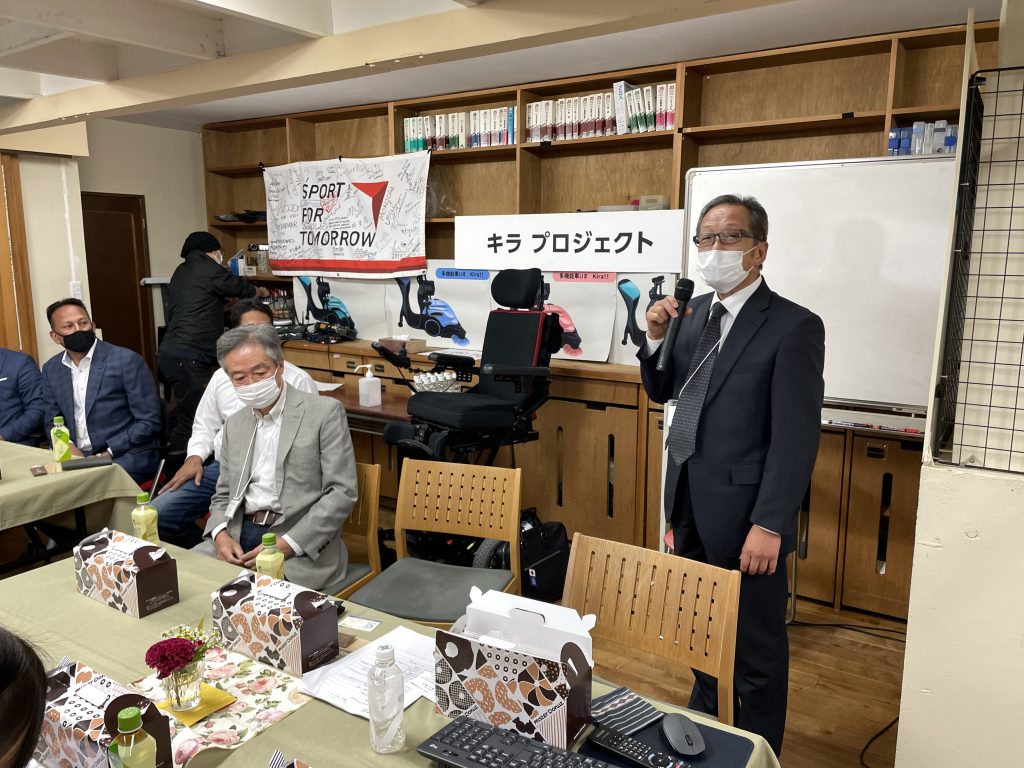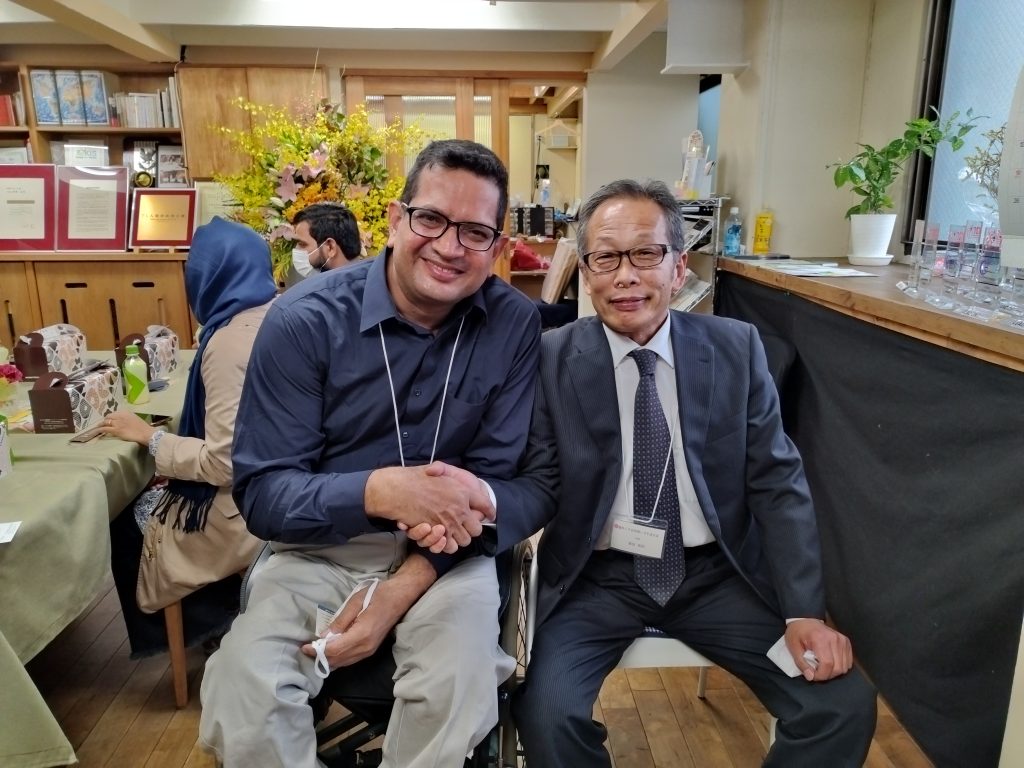NPO Sakura Wheelchair Project, along with our NGO, has been sending wheelchairs to Pakistan and Mongolia. The Project originated from the activities which Mr. Sho Saito, owner of an electric wheelchair manufacturing company, Saito Kobo Ltd., started in 1999. At first their main activity was to go to those countries and teach how to produce or fix wheelchairs.
After 10 years of its activities, the Project was certified as a non-profit organization in 2011 with the aim of supporting independent living for people with disabilities in Asia, Central America, and other regions. What had made this possible was the cooperation of organizations of people with disabilities, wheelchair industry associations, and Pakistani volunteers living in Japan.
The unique feature of the Project is that it combines the provision of used wheelchairs to countries that are ready to accept them and the transfer of technology to them. It usually sends manual wheelchairs abroad. As for Pakistan, which has already started producing manual wheelchairs on their own, it sends a container of all electric wheelchairs and holds a refurbishing workshop after the wheelchairs have arrived. Those used electric wheelchairs are provided from users all over Japan.
So far, the Project has visited nine countries aiming to transfer technology and has sent manual wheelchairs to Nepal and Mongolia. As for electric ones, it has sent about 1300 units to Pakistan, through 20 times container transport as of September 30, 2022. It has also held 15 workshops for Pakistani people. (Unfortunately, it hasn’t been there these three years because of the corona crisis.)
Electric wheelchairs are far more complicated equipment compared with manual ones which our NGO usually send to overseas children. When they break down or have trouble in developing countries, there’s lack of skill for fixing them or short of parts in most cases. In addition to repairing skills, if there is no fitting skill for each individual with disabilities, the wheelchair may not fit the body, causing secondary disabilities. The precious electric wheelchair will not be used anymore then. It is this Project that aims to avoid such problems, and to help people with disabilities in the country learn maintenance techniques suitable for them, maintain the equipment themselves for their own independence. Its main focus is on human resource development.
Ten years after its launch, a commemorative event was held on Wednesday, October 19, 2022, at the company building of Saito Kobo, where the Sakura Wheelchair Project is based, to report on the Project’s activities. Among the guests of honor was Shafiq Ur-Rahman, head of the Milestone Society for Special Persons, which has successfully embodied Saito’s philosophy in Pakistan. Other guests included the Embassy of Pakistan, the Ministry of Foreign Affairs, JICA, the Duskin AINOWA Foundation (which promotes human resource development support activities in countries in the Asia-Pacific region), and many others who support the Project.
Our NGO was invited to the event, and President Morita and one of our board members attended. In his speech, Mr. Morita praised the Project’s promotion of human resource development, technical assistance, and local organization, saying that it is very progressive and superior to any other organization.
In the end, we promised Mr. Shafiq and Mr. Saito that we will continue to send wheelchairs to Pakistan and many other developing countries overseas by strengthening cooperation with the Project.
October 24, 2022 Secretariat

All the attendants at the event.


Mr. Saito, making a report of their activities and expressing gratitude for support.
гҖҖгҖҖгҖҖгҖҖгҖҖгҖҖгҖҖгҖҖгҖҖ


Mr. Hafiz from the embassy of Pakistan. Mr. Morita, making a speech.
 гҖҖгҖҖгҖҖгҖҖ
гҖҖгҖҖгҖҖгҖҖ
(Left)Mr. Morita with Mr. Shafiq from Milestone Society.
(Right)A plaque was presented by Mr. Shafiq to the representatives of the organizations concerned to thank them for their past support to Pakistan.
“70th” represents the 70th anniversary of the establishment of diplomatic relations between Pakistan and Japan.
